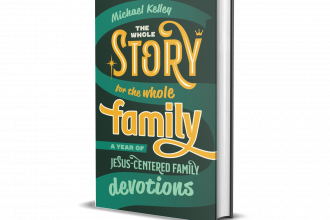Psalm 139 is a psalm about the knowledge of God. The eyes of the Lord range throughout the earth; there is nothing at all that is hidden from Him. He sees all; knows all; is before all. This is how David expressed the reality of God’s presence:
Where shall I go from your Spirit?
Or where shall I flee from your presence?
If I ascend to heaven, you are there!
If I make my bed in Sheol, you are there!
If I take the wings of the morning
and dwell in the uttermost parts of the sea,
even there your hand shall lead me,
and your right hand shall hold me.
If I say, “Surely the darkness shall cover me,
and the light about me be night,”
even the darkness is not dark to you;
the night is bright as the day,
for darkness is as light with you (Psalm 139:7-12).
That presence, and His knowledge, goes beyond nature; it extends to us. God not only knows us; He designed us. Put us together. With great intentionality. The psalm continues:
For you formed my inward parts;
you knitted me together in my mother’s womb.
I praise you, for I am fearfully and wonderfully made.
Wonderful are your works;
my soul knows it very well.
My frame was not hidden from you,
when I was being made in secret,
intricately woven in the depths of the earth.
Your eyes saw my unformed substance;
in your book were written, every one of them,
the days that were formed for me,
when as yet there was none of them (Psalm 139:13-16).
What an amazing thing – that we – every single one of us – are fearfully and wonderfully made. It’s a realization that has big implications, but in the broadest sense, the truth of God’s intentional design of human beings means big things for the way we view ourselves, and the way we view others:
1. Ourselves.
If we are fearfully and wonderfully made, it should change the way we view ourselves. This is a good truth in our day and time because we live in an age of constant comparison. Social media has given us the ability to judge our looks, humor, intelligence, cleverness, and anything else against virtually anyone else in the world. And consequently, we have become very, very dissatisfied with the people we are. It’s not too much of a stretch to say that we have begun, in large part, to hate ourselves. Or at least parts of ourselves. This kind of self-hatred is an affront to the fact that we are fearfully and wonderfully made; it’s dishonoring to our Creator who made us in His own image.
Self-loathing is an inward defiance of the truth that God really did create us as individuals; that He really did form us intentionally; that He did not make mistakes in our physical and mental make up. For not only did God form and create us in a specific and wondrous way, He also gave us His Spirit, and along with Him comes specific giftings we are to put to use for the good of the body of Christ.
It’s not only okay, but actually good and right to recognize that we are valuable. Even more, to recognize that we are actually good at some things. When we admit those things, it’s not an act of pride; rather, it’s an acknowledgment that God made us in a specific manner, and we trust Him.
2. Others.
Being fearfully and wonderfully made not only changes the way we view ourselves; it changes the way we view others. It means that we are in no position to judge the relative worth of a human being, whether that person is in the womb or outside of it, or whether that person is in an assisted living facility or out of one. Every human being is fearfully and wonderfully made, and therefore we should treat every human being with respect and dignity.
It’s a respect that acknowledges that God has uniquely created this person, each one has a story, and we don’t have any idea for what purpose God might have connected us at that given moment. It is, as C.S. Lewis remarked:
There are no ordinary people. You have never talked to a mere mortal. Nations, cultures, arts, civilizations—these are mortal, and their life is to ours as the life of a gnat. But it is immortals whom we joke with, work with, marry, snub and exploit—immortal horrors or everlasting splendors. This does not mean that we are to be perpetually solemn. We must play. But our merriment must be of that kind (and it is, in fact, the merriest kind) which exists between people who have, from the outset, taken each other seriously—no flippancy, no superiority, no presumption.
This truth – that God has formed and made each one of us with great purpose and intentionality – is not just an intellectual acknowledgment. It changes the way we view ourselves and extends to everyone else. For we are all – all – bearers of God’s image. Fearfully and wonderfully made.
Subscribe to MichaelKelley.co
Never miss a new post. Subscribe to receive these posts in your inbox and to receive information about new discipleship resources.





